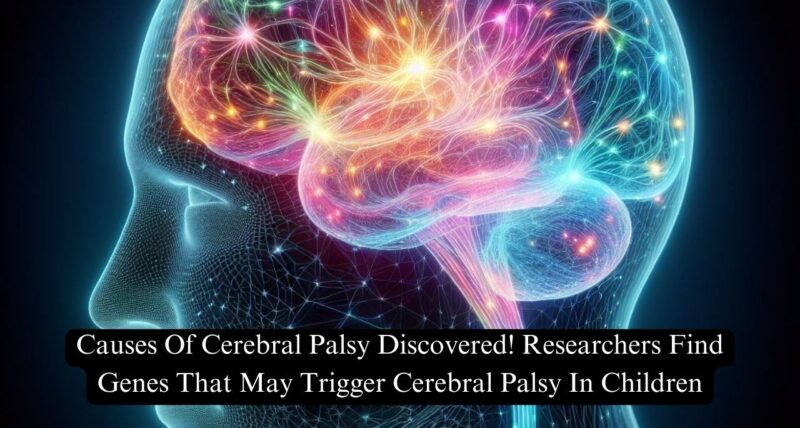The causes of cerebral palsy discovered have long been a mystery in the scientific community. Its causes have often been attributed to environmental factors since the beginning. Nonetheless, noteworthy investigations have revealed new insight into the starting points of this convoluted circumstance. It is the likely job of hereditary components. The milestone perception was posted in the Nature journal. Specialists have uncovered an abundance of hereditary versions that could contribute to the improvement of cerebral paralysis in youngsters. Let’s dive into this noteworthy revelation and its suggestions for understanding and treating this incapacitating illness.
Understanding Cerebral Palsy
Understanding cerebral paralysis and its impact on individuals is crucial before digging into the momentum of research discoveries. The causes of cerebral palsy discovered are a bunch of neurological issues that influence development, muscle tone, and stance. It results from a curious turn of events or damage to brain parts that control development, equilibrium, and stance.
Historical Perspective: Environmental Factors Vs. Genetics
From here, the winning insight shifted to cerebral paralysis primarily caused by natural variables, including birth complications or pre-birth diseases. Recent studies suggest that hereditary factors may play a role in influencing individuals towards the causes of cerebral palsy discovered.
Breakthrough Research Unveiled
The review was driven by scientists from The Hospital for Sick Children (SickKids) and Holland Bloorview Kids Rehabilitation Hospital. Researchers from the Exploration Foundation of the McGill University Health Centre (RI-MUHC) were also involved. It addresses an enormous take-off in our knowledge of the causes of cerebral palsy discovered, and its hereditary underpinnings. By undertaking whole-genome sequencing on a cohort of 327 kids with cerebral palsy and their biological parents. The researchers diagnosed a plethora of genetic variants, probably connected to the situation.
Key Findings: Genetic Variants In Cerebral Palsy
Two in ten children with cerebral palsy harbored a genetic version or likely genetic variant associated with the condition. It was discovered through the study. Additionally, nearly 18% of children exhibited versions of uncertain significance that warrant similar research. These findings recommend a complex interaction between genetic predisposition and environmental elements in the improvement of cerebral palsy.
Implications For Treatment And Care
The disclosure of hereditary variations is crucial for understanding the causes of cerebral palsy discovered and creating designated cures. By disentangling the hereditary underpinnings of the situation. Researchers can discover novel healing goals and tailor treatment strategies to individual patients’ needs. Furthermore, knowledge of the genetic elements contributing to cerebral palsy may additionally permit healthcare vendors to offer personalized care. It will be of great assistance to affected individuals and their families.
A Paradigm Shift In Cerebral Palsy Research
The discovery of hereditary variations linked to cerebral paralysis has significantly altered the understanding of pediatric neurology. For a long time, specialists have wrestled with the complexities of cerebral paralysis. It often focuses on environmental factors while overlooking the capacity of genetics. However, the advanced discoveries highlight the meaning of thinking about each hereditary and natural component. This will help understand and treat the causes of cerebral palsy discovered more accurately.
The Road Ahead: Future Directions In Cerebral Palsy Research
The most recent review addresses a leap forward. However, there’s still a long way to go about understanding the hereditary underpinnings of cerebral paralysis. Future research will focus on understanding the exact components that contribute to the advancement of the condition through hereditary variations. Furthermore, scientists will find out how hereditary bits of knowledge might be converted into current treatment plans and interventions. The goal is to upgrade the ramifications for individuals with cerebral paralysis.
The development of hereditary cerebral paralysis varieties addresses an extraordinary achievement in the field of pediatric nervous system science. Scientists are paving the way for customized medicines and high-level results by explaining the hereditary basis of this complicated circumstance. There are ongoing attempts to determine the secrets of the causes of cerebral palsy discovered. We are moving towards a future where every moment counts, free from the limitations imposed by this incapacitating illness.



